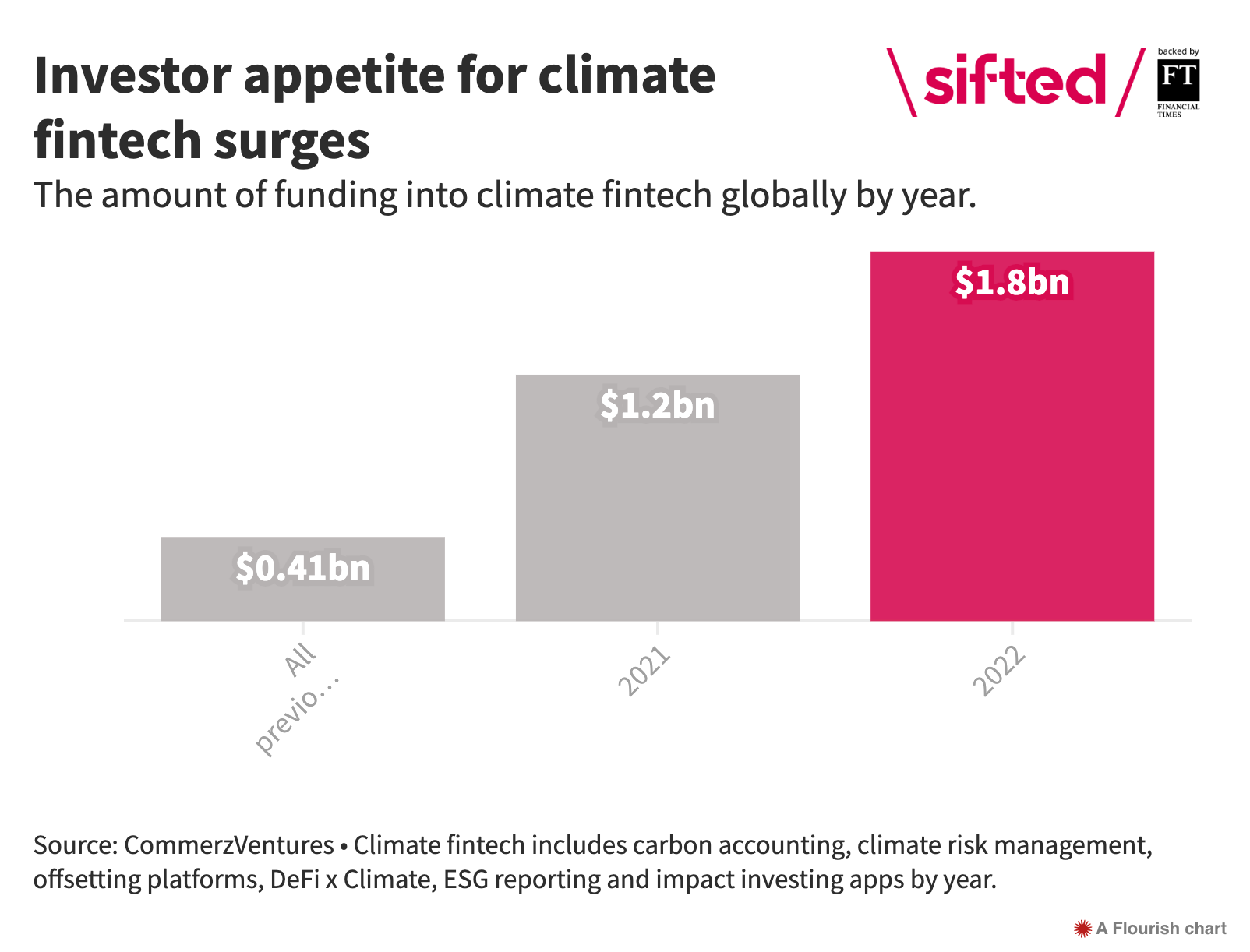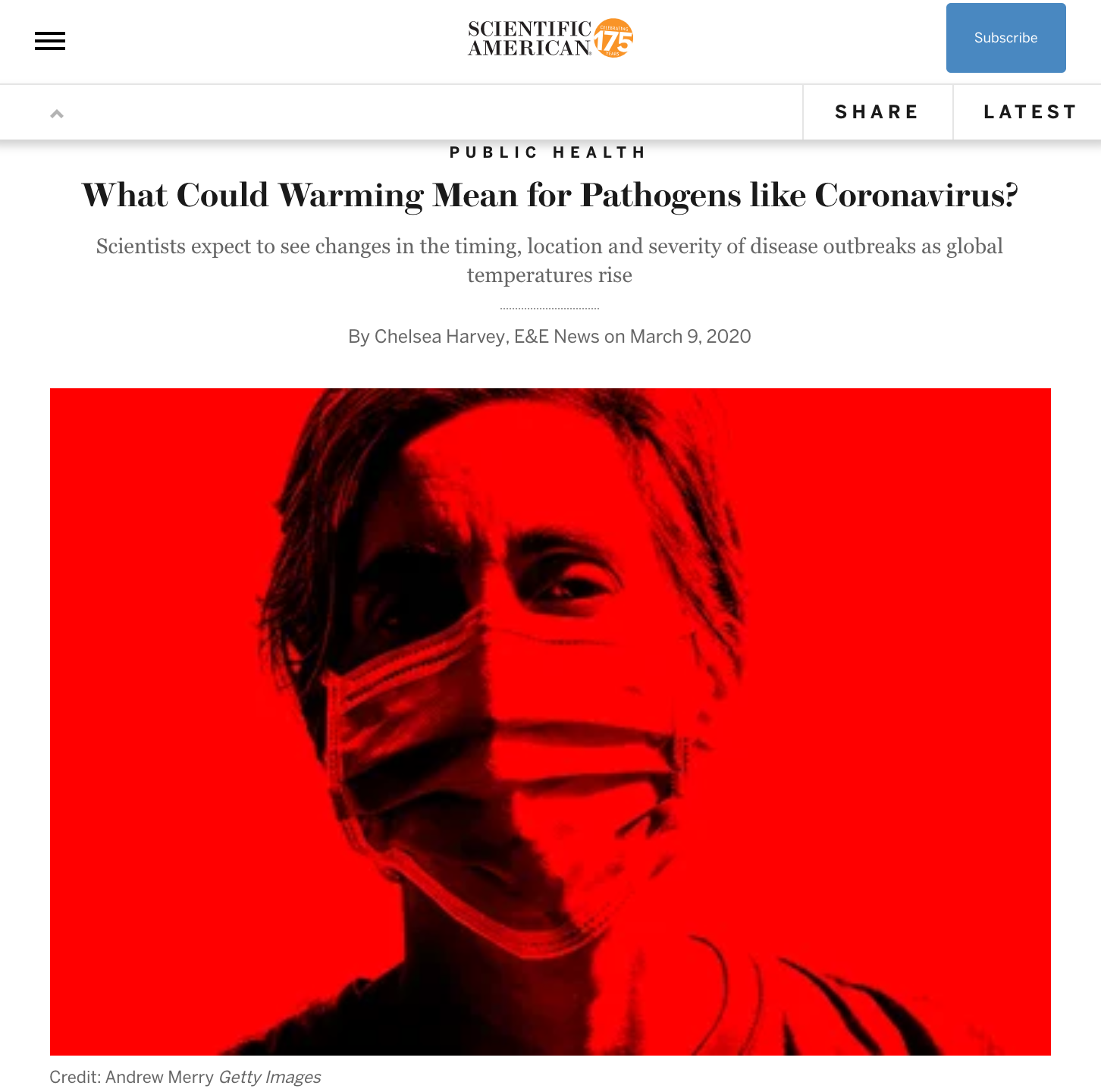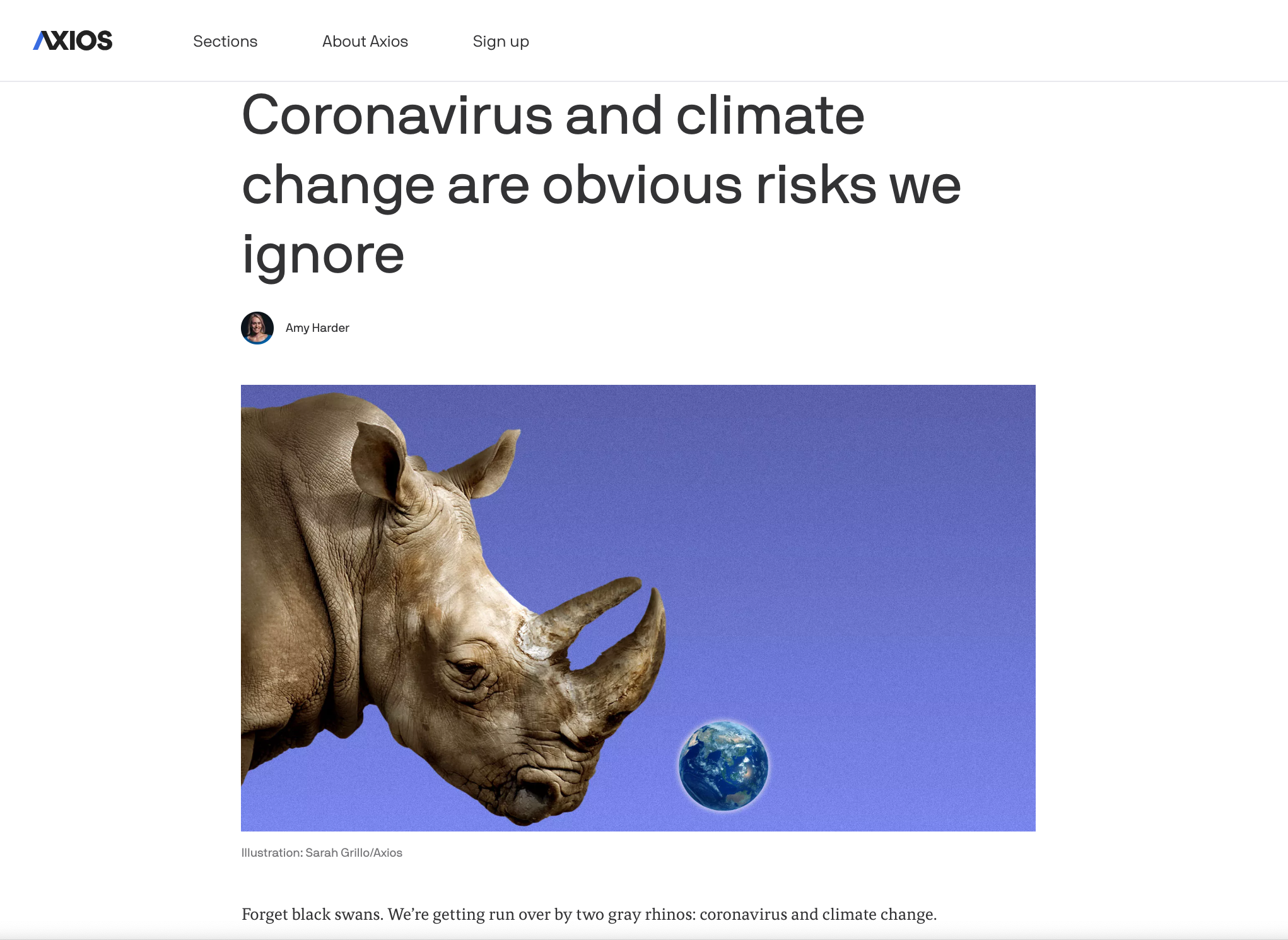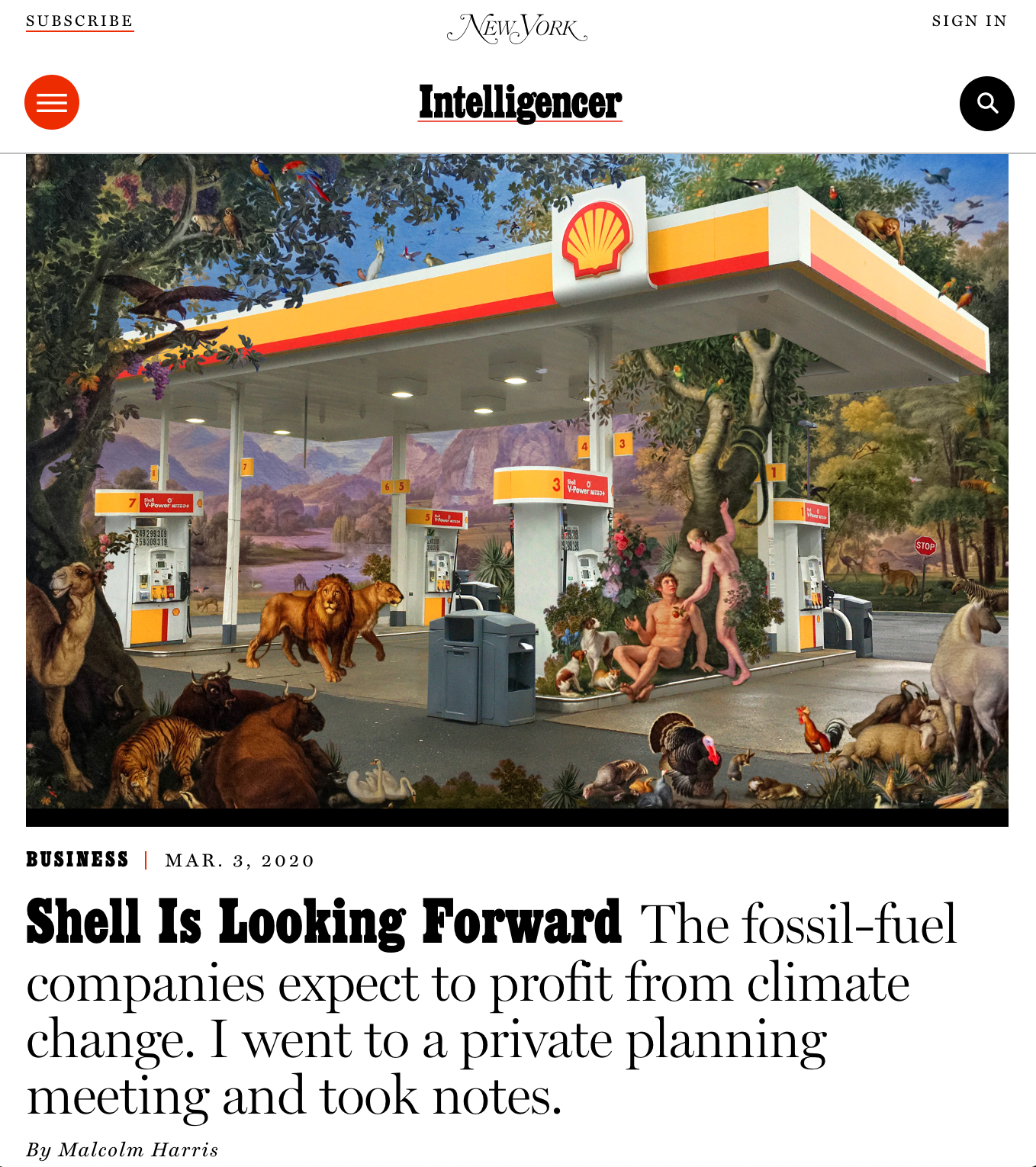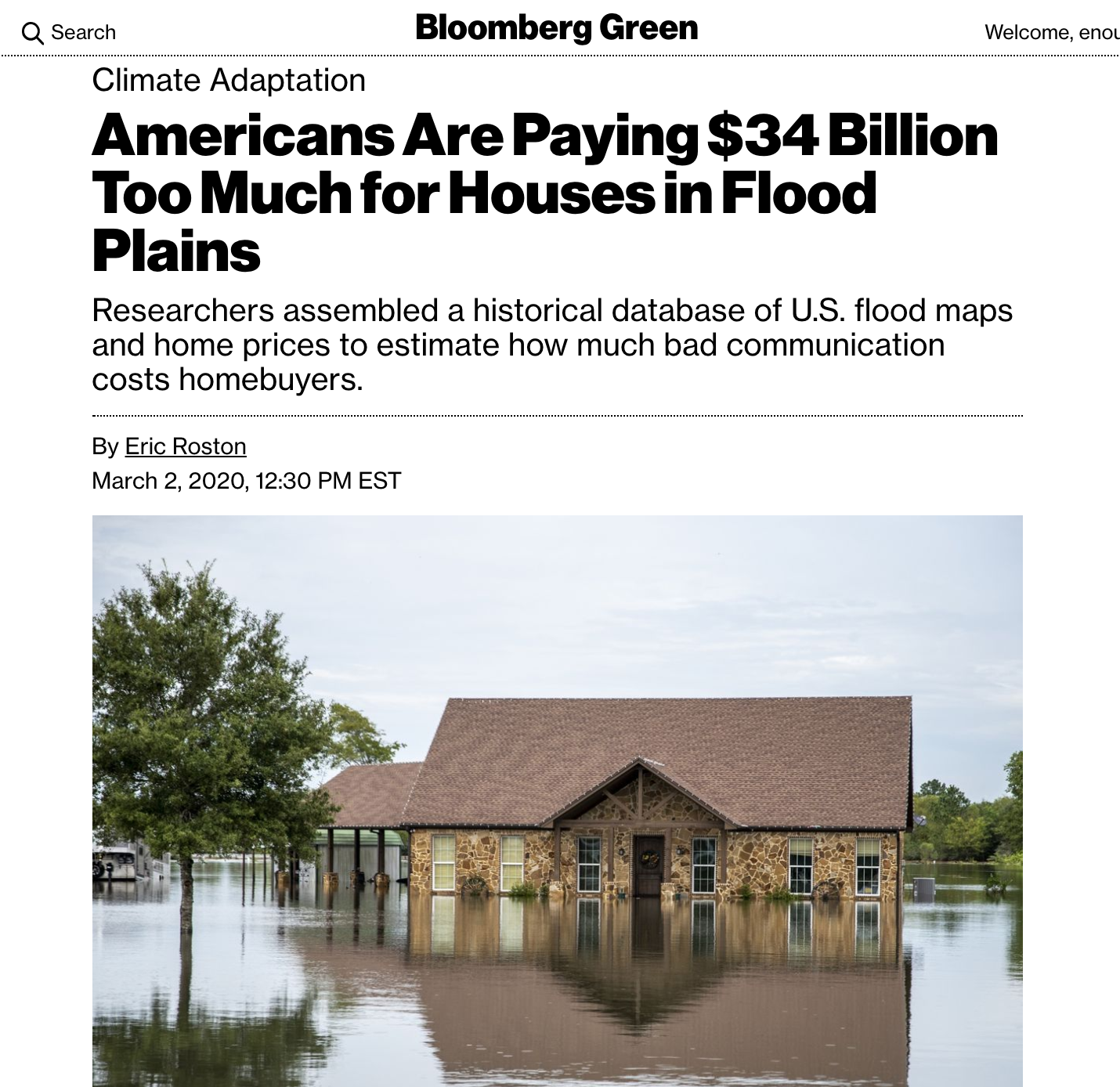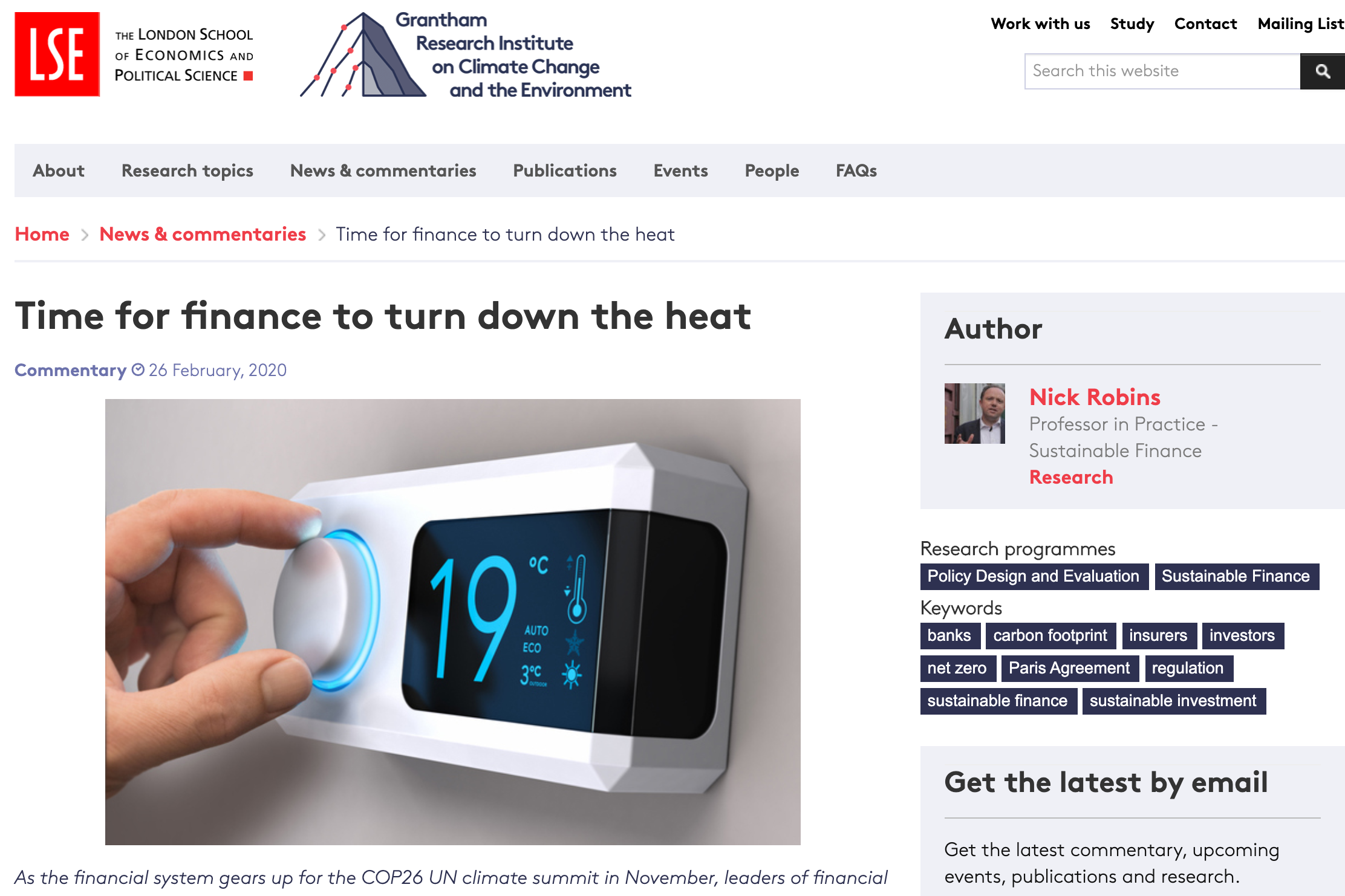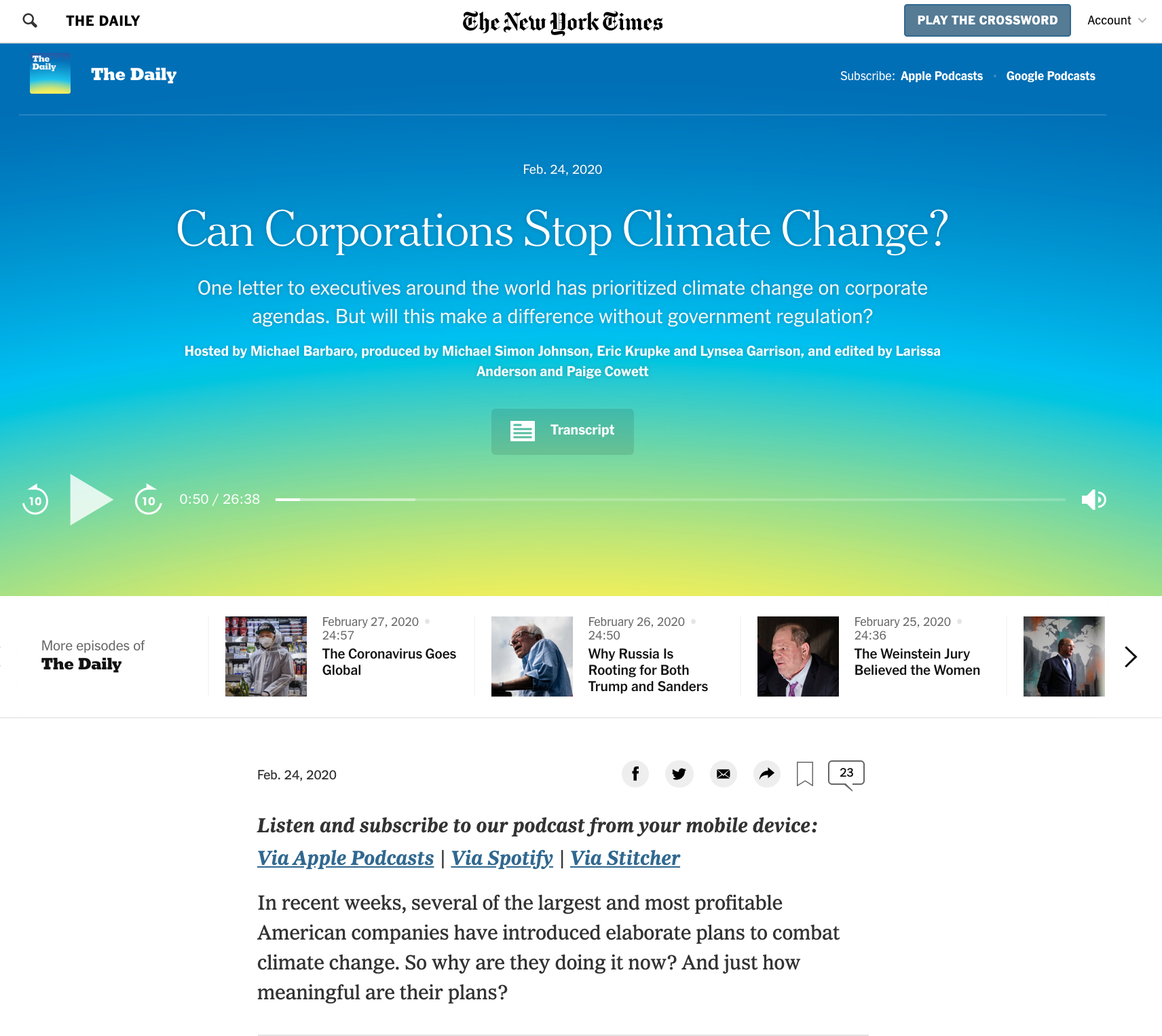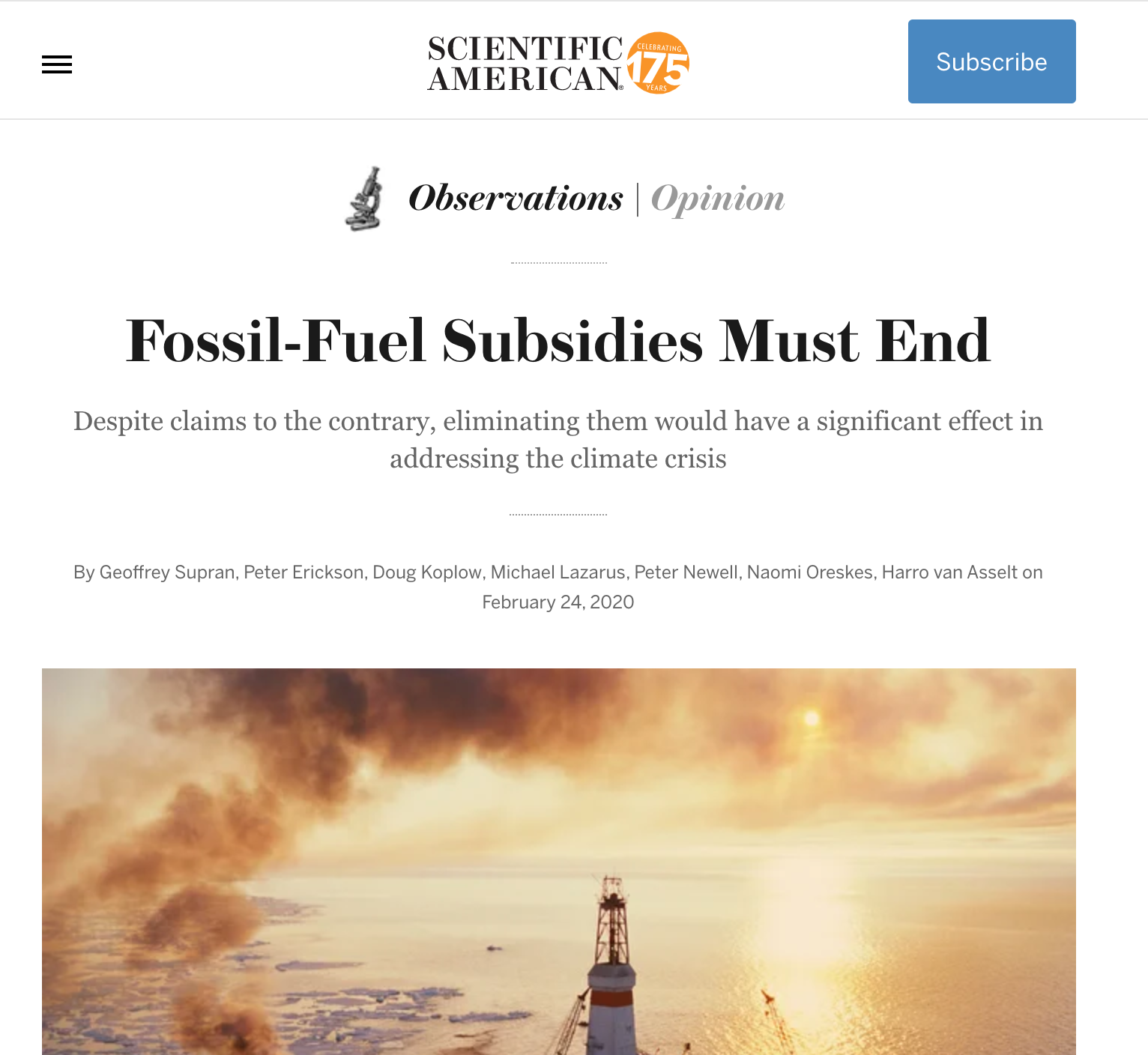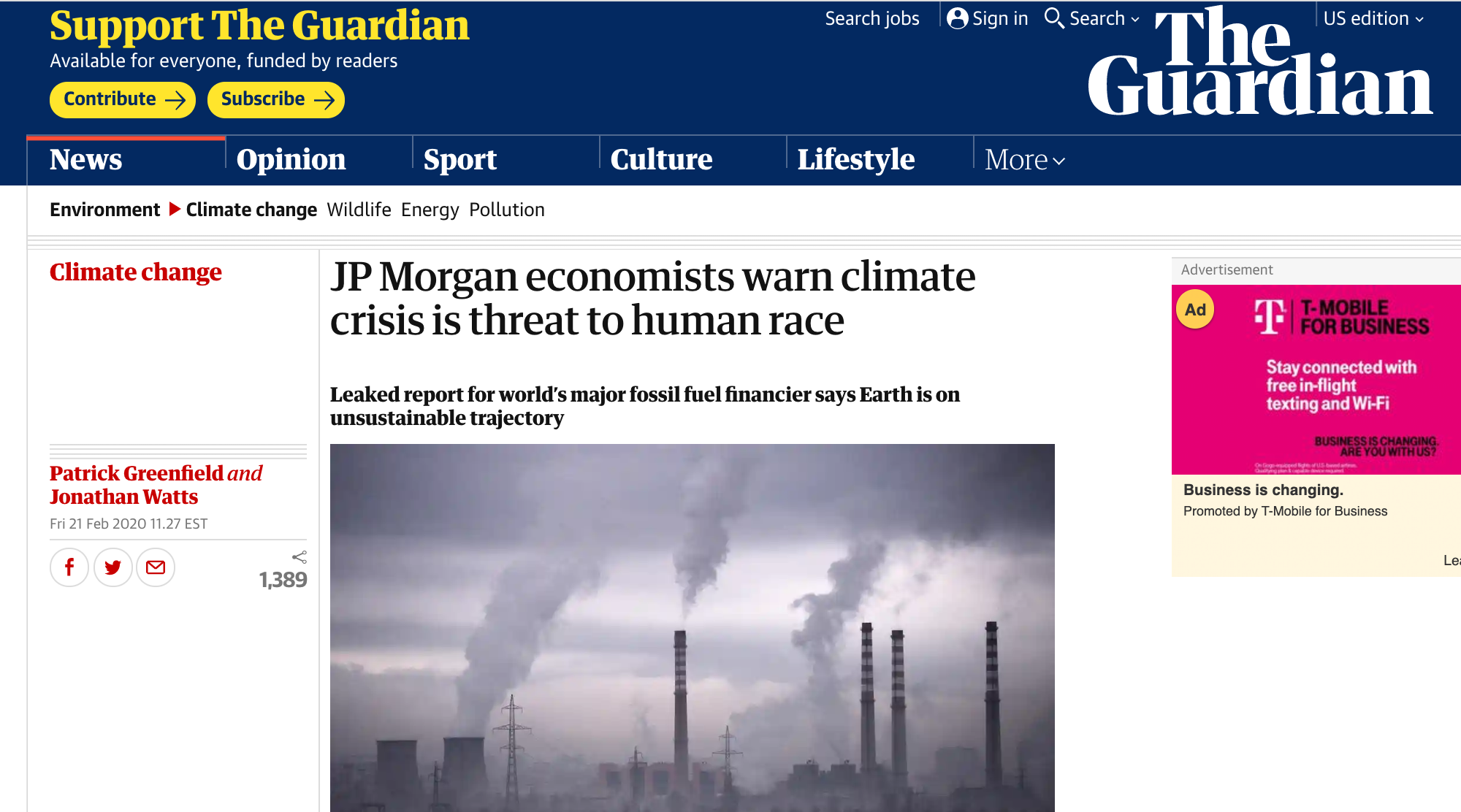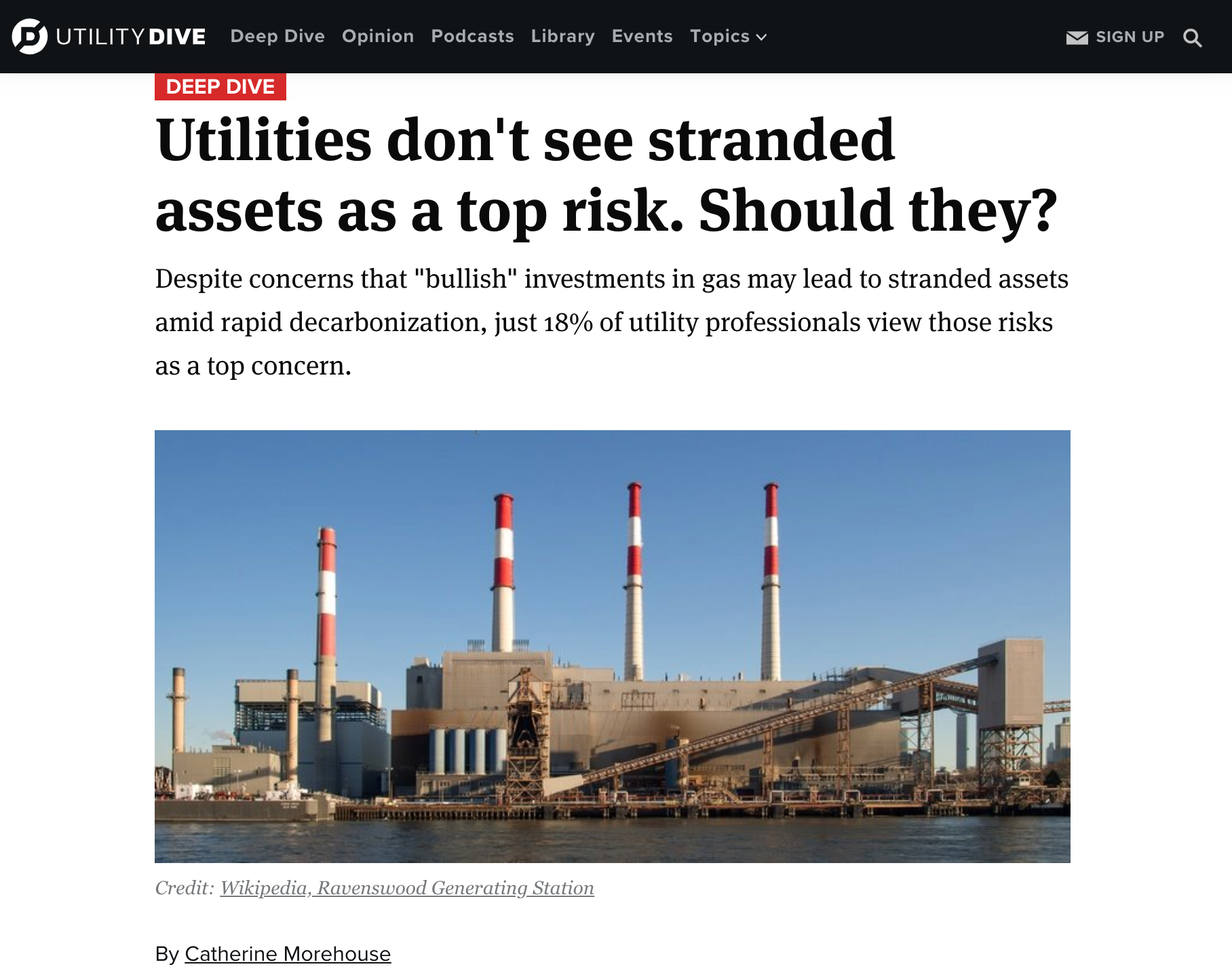The climate crisis will impact every economic sector
Climate Risk
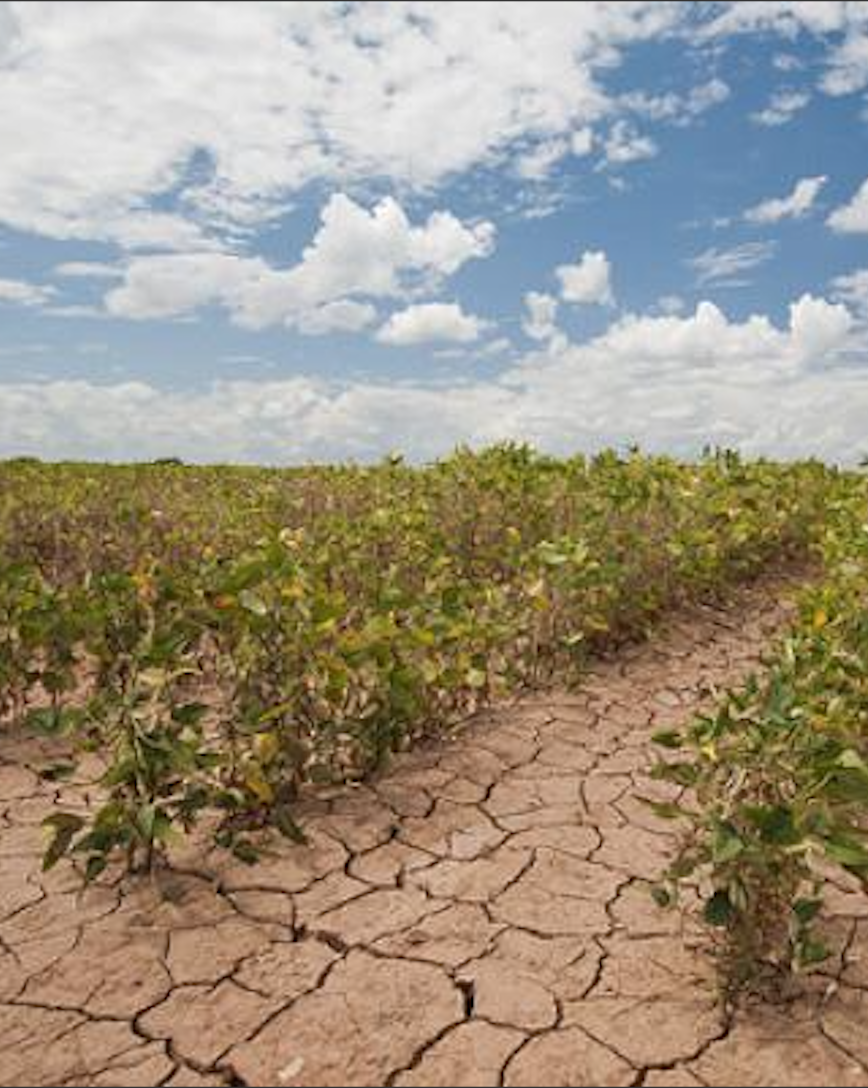
Climate related financial risks
are still largely unmeasured, undisclosed, & unpriced
At their healthiest, prices in any market prices reflect many parties’ assessments of future risks and future opportunities. This is why measurement, disclosure, and mitigation of risk is such a huge part of any financial operation.
The climate crisis has already cost billions of dollars in direct and indirect economic damages from air pollution, droughts, fires, floods, hurricanes, and sea level rise spanning across multiple industries. It’s time to understand and plan for how climate risk may impact you, your income, investments, job, company, industry, and the economy in general.
Eventually the economic impacts of the climate crisis will touch every sector of the economy. On this page, we will track resources, news, and research on climate risk, starting with the most clearly impacted sectors and adding new ones as data become available.
Clear, present, and underpriced: the physical risks of climate change – Rhodium Group report, April 2019
Read more about Climate Risk on the Climate Economy blog:
Most-Impacted Sectors
Agriculture
Banking
Coal
Financial System
Infrastructure
Insurance
Oil & Gas
Public Equity
Private Equity
Real Estate
Transportation
Resources
Climate Risks by Economic Sector
Agriculture
Soil depletion, changing demand, supply chain, direct impacts on climate, desertification, weather patterns, wildfires, unpredictable growing seasons
Banking
Asset damage, loan defaults, insurance losses, tax losses to municipalities
Bank regulators present dire warning of financial risks from climate change
Coal
Finance risk, insurance risk, decreased demand, large-scale divestment, competitive risk from renewables, policy risk
Financial System
Insurance/reinsurance market failures, undisclosed climate risks, policy shock Climate change threatens the stability of the financial system
Infrastructure
Damage from severe weather and fire events, inability to rebuild in impacted areas, effects on bond markets
Muni bonds face climate change and investors are ignoring the risks
Insurance
Losses sustained during severe weather and fire events, failure of reinsurance markets
How insurance companies can prepare for risk from climate change
Oil & Gas
Decreased demand, large-scale divestment, liability, project finance and insurance risks, policy risk
YNTR: Lex in Depth: the $900bn cost of stranded energy assets
Public Equity
Disclosure of climate related risks, large scale divestment, falling demand for climate polluting goods and services, loss of market cap leading to losses for endowments, pensions, and other large funds
Private Equity
Project finance, insurance, falling demand for climate polluting goods and services, loss of market cap leading to losses for endowments, pensions, and other large funds
Real Estate
Severe weather damage and impact on demand, cost of retrofitting, ability to get insurance and financing
Transportation
Infrastructure damage, changes to supply chains, reduced demand, lack of market for fossil fuel powered vehicles, policy risks
Why the transport sector needs to adapt to climate change
WE are the Markets.
Working all together, people can unlock the capital
needed to solve the #climatecrisis faster
Want More Info?
We'd love to keep you posted on what we are up to.

